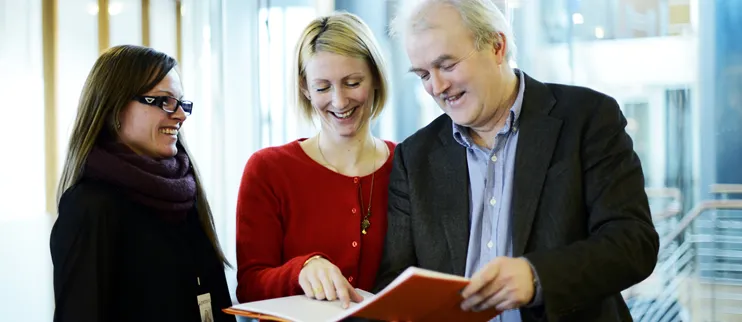SDFI and Petoro annual report 2012
Contents      | |||
Health, safety and the environment (HSE)HSE results for facilities in the portfolio have been improving over a number of years. The serious incident frequency (SIF) per million working hours was 1.3 for 2012, an improvement of almost 15 per cent from the year before. This is based on 47 incidents registered as serious on the 18 fields in the target group. No fatalities were suffered in Petoro’s portfolio during 2012. Dropped objects and incidents related to mechanical handling continued to dominate the statistics, despite big improvements in these categories over the past three years. The personal injury frequency per million working hours has been stable at around 5.3 for the same period. | Petoro works both with operators and the industry as a whole to achieve reductions in personal injuries and serious incidents. It participated in several HSE management inspections on selected fields and installations during 2012. The company focused attention during the year on measures to reduce the risk of major accidents. To identify risk elements in the licences, efforts were made to establish best practice through a collaboration project with ConocoPhillips, ExxonMobil and Total. Brainstorming sessions were conducted in 14 Statoil-operated licences during 2012 to identify risk elements with a major accident potential. This work will continue in 2013 with the goal of further operationalising the process. The project has been presented to the Petroleum Safety Authority Norway, and received a positive response. With regard to the natural environment, Petoro wants to ensure that power from shore is considered for new field developments and major conversion projects. See the section on the natural environment in the chapter on corporate social responsibility. | ||



